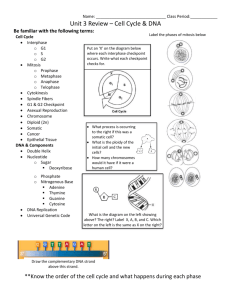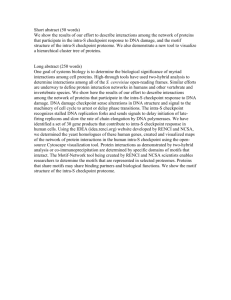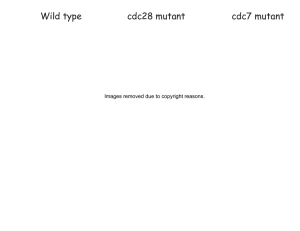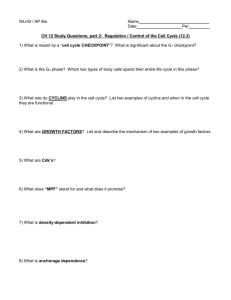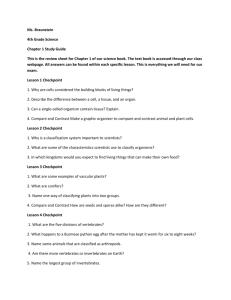AbstractID: 7482 Title: Cancer Biology – How a cell responds... Exposure to ionizing radiation or other genotoxic agents leads to...
advertisement
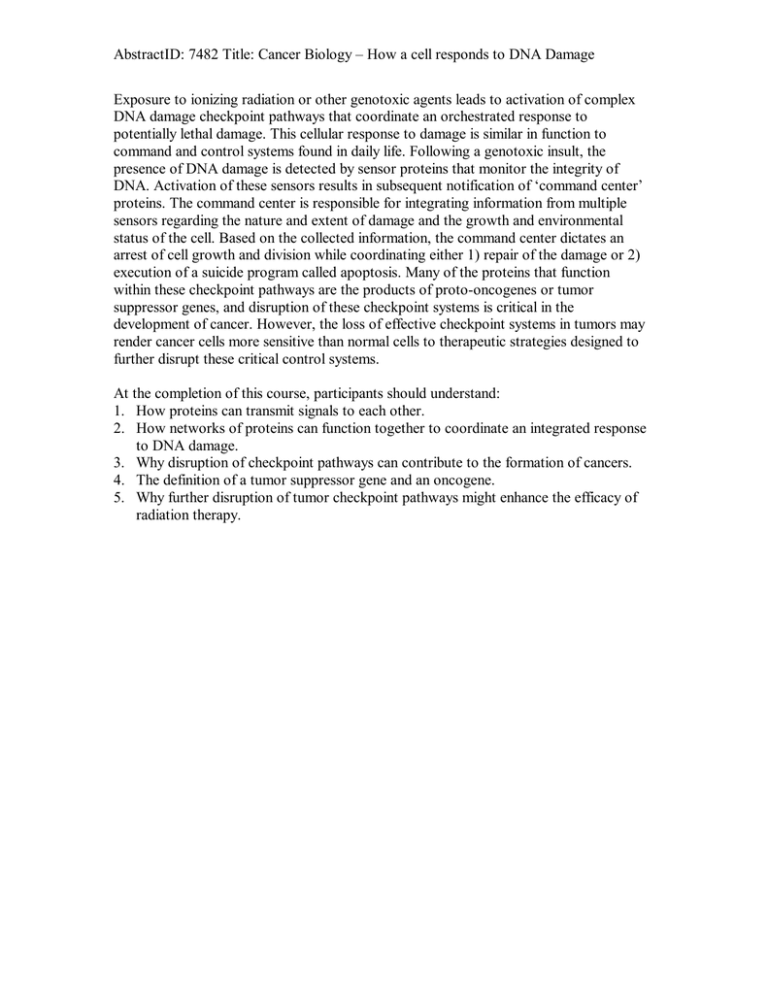
AbstractID: 7482 Title: Cancer Biology – How a cell responds to DNA Damage Exposure to ionizing radiation or other genotoxic agents leads to activation of complex DNA damage checkpoint pathways that coordinate an orchestrated response to potentially lethal damage. This cellular response to damage is similar in function to command and control systems found in daily life. Following a genotoxic insult, the presence of DNA damage is detected by sensor proteins that monitor the integrity of DNA. Activation of these sensors results in subsequent notification of ‘command center’ proteins. The command center is responsible for integrating information from multiple sensors regarding the nature and extent of damage and the growth and environmental status of the cell. Based on the collected information, the command center dictates an arrest of cell growth and division while coordinating either 1) repair of the damage or 2) execution of a suicide program called apoptosis. Many of the proteins that function within these checkpoint pathways are the products of proto-oncogenes or tumor suppressor genes, and disruption of these checkpoint systems is critical in the development of cancer. However, the loss of effective checkpoint systems in tumors may render cancer cells more sensitive than normal cells to therapeutic strategies designed to further disrupt these critical control systems. At the completion of this course, participants should understand: 1. How proteins can transmit signals to each other. 2. How networks of proteins can function together to coordinate an integrated response to DNA damage. 3. Why disruption of checkpoint pathways can contribute to the formation of cancers. 4. The definition of a tumor suppressor gene and an oncogene. 5. Why further disruption of tumor checkpoint pathways might enhance the efficacy of radiation therapy.
